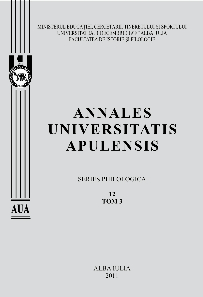English Teaching and English Language Acquisition in Japan: The Three-Day Magic Formula
English Teaching and English Language Acquisition in Japan: The Three-Day Magic Formula
Author(s): Carmen Săpunaru TămașSubject(s): Foreign languages learning
Published by: Universitatea »1 Decembrie 1918« Alba Iulia
Keywords: Japanese society; Japanese learners; English Language Acquisition
Summary/Abstract: This paper is an attempt to look into the social mechanisms that underlie a defining phenomenon in Japanese society: the desire (seldom fulfilled) to become proficient in English. This trend led, during Japan’s economic boom of the 1980’s, to the appearance of numerous English conversation schools, which in turn became profitable businesses for their owners, but less profitable investments for the students. Despite organizational and financial efforts, Japanese learners on average still have a long way to go until they reach the desired ability to speak English fluently. My paper analyzes the English conversation school phenomenon in contemporary Japanese society, where these schools remain customer-oriented, merchant-like units focused on offering the best type of service, which does not always translate into efficient education. By discussing the current trends in marketing and advertising these schools, I hope to prove that they do not constitute educational institutions, and that their customer-students are attracted by the apparent facility with which they can acquire proficiency. Thus, a vicious circle is created: the students require comfort (that is, good service) and are not prepared to make an effort towards learning, while the schools provide that comfort, but are not willing to invest in real education materials and methods. This, in my opinion, is the flaw that turns the goal of learning a foreign language into an elusive, modern-day Holy Grail.
Journal: Annales Universitatis Apulensis. Series Philologica
- Issue Year: 12/2011
- Issue No: 2
- Page Range: 427-434
- Page Count: 8
- Language: English

